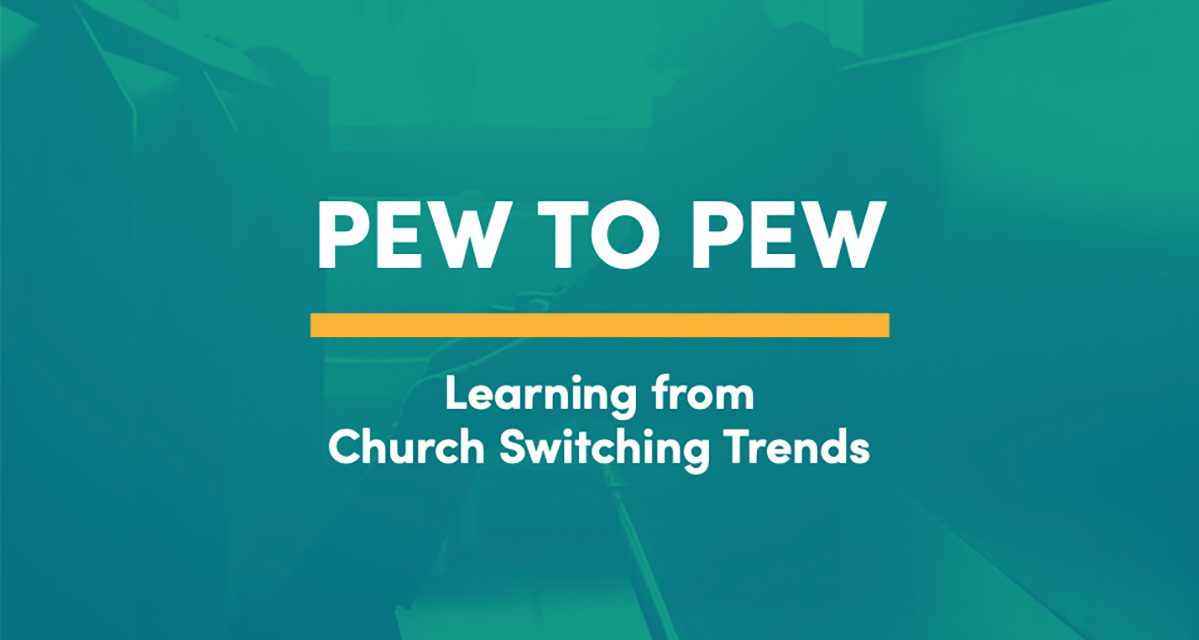BRENTWOOD, Tenn. — Even as the front doors of churches swing wide to welcome new faces to the congregation, the back doors creak open as others make their way out to another church.
For some, a residential move caused them to leave the church, but others simply moved to a church across town. A recent study by Lifeway Research found slightly more than half of churchgoers switch churches at least once as an adult.
Lifeway Research conducted a comprehensive study on churchgoers in the United States, focusing on reasons people change congregations. The Church Switchers Study surveyed 1,001 Protestant or non-denominational adults who attend church at least twice a month and have switched churches as adults.
“Many churchgoers have or will change churches either because they want to or because they have to after moving to a new home,” said Scott McConnell, executive director of Lifeway Research. “It is helpful for church leaders to see how those looking for a new church conduct their search and the large number of things they feel are important in their new church.”
Lifeway Research’s Insights Report, Pew to Pew, explores data and uncovers practical tips regarding both groups—the movers, those leaving a church because of a change in location, and the shakers, those leaving for reasons closer to home.
The impact of residential moves
Most switchers who changed churches as adults did so because of a residential move—not driven by an issue with their former church. Although it may be sad for pastors and church leaders to hear of a member moving to another city or state, leaders have the opportunity to celebrate with these members and send them off well to their new church and mission field. In fact, church switchers tend to find higher satisfaction in their new congregations, indicating that the move often leads to positive outcomes, including deeper relationships, increased involvement and personal spiritual growth.
One of the most alarming trends the study revealed is that 2 in 5 movers (41%) stopped attending church for three or more months before finding their current church. This statistic serves as a call for pastors to consider ways they can help church members moving to a new community find their next church.
When it comes to finding a new church, there’s no substitute for personal interactions. The majority of movers used in-person visits to churches (69%) and recommendations from family, friends, neighbors and/or colleagues (54%) to find a new church. Each year churchgoers arrive in communities and need a new church. The question is whether they’ll find the church and what they’ll think when they check it out.
When it comes to choosing a new church after a residential move, the church’s beliefs and doctrine matter as much as a good sermon. For most regular churchgoers who have changed churches, their current church’s beliefs and doctrines (86%) and preaching (86%) were important in their decision to attend that church.
Dissatisfaction with church
While residential moves are a primary driver for changing churches, 40% of church switchers switched because they were unhappy or dissatisfied with their previous church. The Church Switchers Study underscores that dissatisfaction with changes in the church, unmet needs and issues with the pastor significantly influence a churchgoer’s decision to leave and find a new church in the area. Understanding the complex motivations behind church switching can guide pastors and church leaders in proactively addressing concerns and fostering more engagement and satisfaction among congregants.
“The typical person changing churches has multiple reasons for making this change,” McConnell said. “Broadly speaking people leave a church when they disagree with change, are disgruntled or disagree with the church’s positions. It’s much less common to see people leaving because their own religious beliefs changed.”
Pastors and church leaders should be aware that churchgoers switching to another congregation is a normal part of church life; however, they can also work to close their back door as much as possible.
The path forward
Each week, churches are impacted by members switching churches. The Pew to Pew Insights Report from Lifeway Research helps pastors and church leaders consider how they should respond.
The report invites leaders who are seeing new faces enter the front door of the church to make their churches easy to find, comfortable to visit and accessible to connect with. And for those not seeing new neighbors visiting the church, the invitation is to do some digging to figure out if that’s because people aren’t moving to the area, they’re having trouble finding the church when they arrive, or the church is not meeting needs in the community.
In this report, actionable insights based on data encourage pastors to take the time to figure out why people are leaving their church, grieve the loss of those who are leaving, send members to their next church well and make adjustments to meet the needs of the church members and community. Based on this research, pastors and church leaders will be equipped to take steps toward building a church culture where churchgoers stay, committing themselves to one another in a God-honoring way for the good of the body of Christ and the furthering of God’s kingdom.
To explore the complete findings on church switching trends, download Pew to Pew, the Insights Report from Lifeway Research.





